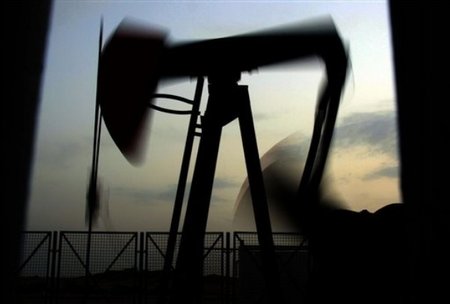
The FT had an interesting note on oil markets last week. It seems U.S. traders are floating barges full of oil down river from Oklahoma to Louisiana where a barrel fetches an extra $15.10.
Record stocks of 40m barrels at landlocked Cushing, Oklahoma (the delivery point of West Texas Intermediate (WTI), the U.S. benchmark price), have produced a supply glut. Thereâ??s talk of building a pipeline to move 400,000 barrels per day from Cushing to Houston to connect â??strandedâ? barrels with the global energy infrastructure. In the meantime, oil is being moved by truck, train and boat to take advantage price differentials.
The economics and infrastructure are such that one oil company is even sourcing Canadian crude from a pipeline in Mississippi and literally shipping it to refineries in Louisiana.
â??Weâ??re taking a steady diet of crude through our proprietary barge system down to our Garyville refinery,â? said one oil executive. â??Who would have ever thought that we would be moving western Canadian all the way down to Louisiana?â?
The current trend of price anomalies reconfiguring energy markets is reminiscent of the oil price swings of 2008.
At that time, however, it wasnâ??t geographical price differencesâ??exacerbated by a Middle East supply shock, growing emerging markets and loose monetary policyâ??that traders were cashing in on. It was quite the opposite, in fact. As the world economy fell off the precipice in 2008, traders, oil companies and even investment banks were taking advantage of the record price differences between tumbling current prices and rebounding future prices caused by oil supply outstripping global demand.
Punters were hoarding the cheap, excess oil, storing it offshore on super tankers, while at the same time entering agreements to sell that oil at a future date and at an agreed upon higher price, thereby locking in a profit. The difference then between WTI for immediate delivery and a one-year forward contract was $21.50 a barrel.
But not all oil is created equal, independent of whether or not it's bought today or tomorrow. The crisis in Libya has halted the production of its light, sweet crude that is prized for being easily refined into diesel and petrol, and for having a low sulfur content, making it cleaner to burn.
Saudi Arabia has said it â??will meet any shortageâ? of oil supply but its oil is heavier and higher in sulfur, leaving it as a more expensive product for oil refineries to work with. WTI oil, also sweet and light, is a better substitute for Libyan oil, which means unrest in North Africa has helped push the U.S. benchmark to $114 a barrel.
Luckily a flattening has been occurring across the crude spectrum in the last few years. Since oil prices reached their record level of $147 a barrel in 2008, refiners have invested heavily in infrastructure allowing them to process heavy crude much more efficiently; thus putting a smaller premium on the sweeter variety.
Had this not been the case, who knows how far, and by what means, traders would be moving Canadian oil just to make a quick buck.
(AP Photo)



